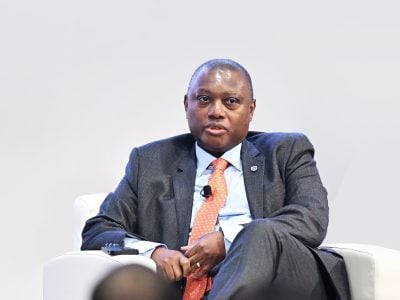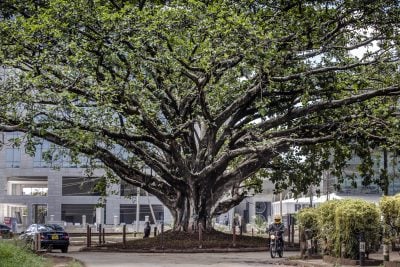Female entrepreneurs and business owners play a vital role in economies across Africa. Yet, many women are locked out of industry due to barriers that add challenges to accessing credit and financial services. Many hurdles, poverty, discrimination, a lack of institutional support and outdated gender norms play into the $42bn financing gap facing African women.
However, while an increasing number of financial institutions place gender-free benchmarks on some financial services and products, offering them without any gender bias, observation on the ground, statistics and common practice indicate the general position is otherwise and women’s financial needs and demands are taken far less seriously than those from men.
Benefits to whole communities
Yet, empirical evidence clearly shows that creating an environment where women can more easily receive bank funding results in benefits to their entire communities. While men invest just 30% to 40% of their incomes into their family’s needs, studies show that women reinvest up to 90%.
Data from the United Nations Development Programme (UNDP) also estimates that failing to include women fully in economic life costs sub-Saharan Africa $95bn in lost productivity every year.
There is no silver bullet that will eliminate all of the barriers that women face when it comes to obtaining finance. However, solutions exist and banks and other lenders have a unique role to play when it comes to finding ways to close the gender financing gap.
A working paper by the African Development Bank found that in addition to external financial barriers, “women entrepreneurs are more likely to self-select themselves out of the formal credit market [compared to men] based on their perceived creditworthiness,” the report explains.
The findings also show that even if banks would view a female application favourably, the self-selection behaviour still exists, leading to women failing to gain much-needed funding. One potential way to improve the financial confidence of women entrepreneurs is to offer financial literacy support that objectively explains exactly what banks are looking for when lending money.
Women are also more likely to make use of informal savings markets compared to men, which results in a lack of a formal credit history. Even if women have proved they are able to save informally, banks are not likely to take this into consideration when lending. Establishing partnerships with informal financial markets might not be an easy task for banks, but it would go a long way in gaining a more comprehensive view of the finances of clients.
Dr Tinuade Adekunbi Ojo, Research Fellow, Department of Politics & International Relations at the University of Johannesburg agrees and points to the importance of South Africa’s stokvels (small informal groups that pool members’ contributions for savings and other purposes) in supporting financial inclusion in Africa.
“Some banks have decided to tap into the informal sector market, to get it in into the formal sector and access financial services. This has helped more informal groups like stokvels to benefit from formal financial institutions’ product offerings,” he says.
Diverse initiatives
Fortunately, many major banks, financial institutions and non-governmental organisations are now actively working on programmes to bridge the gender financing gap in Africa.
A pan-African initiative from the African Development Bank called Affirmative Finance Action for Women in Africa (AFAWA) is playing an important role in unlocking new funding for women through a range of programmes. For example, last year AFAWA partnered with the African Guarantee Fund (AGF) to unlock up to $2bn in loans to women-owned SMEs.
By utilising de-risking and technical assistance measures, AFAWA’s Guarantee for Growth is forecast to benefit 18,000 women-owned SMEs and support the creation of up to 80,000 jobs. Banks, too, are introducing programmes specifically aimed at women which have been tailored to overcome typical challenges women entrepreneurs face in gaining financing.
The Women Empowerment Finance facility from Absa Bank offers loans of up to R15m ($1m) to women-owned SMEs if they have a proven revenue stream and positive cashflow, even if they do not have a deposit or collateral. “The bank also has an initiative called Absa Rise, which selects female entrepreneurs annually and assists with business programmes to close the gender gap in entrepreneurship,” says Dr Ojo.
Innovative technologies have undoubtedly transformed African nations in many ways, with women in particular now having access to far more resources through their smartphones than ever before. New digital-only banks are leading the way for financial inclusion by better meeting the needs of female customers.
South Africa’s TymeBank has no physical bank branches but operates kiosks in supermarkets, enabling women to more easily access banking services without having to enter a conventional bank location. A major innovation by TymeBank is the practical education and advice their ‘ambassadors’ give to women who come to open a bank account.
“Mobile money is an initiative that has worked for many women in African countries, especially poor and marginalised women in the rural areas. Most banks in Africa have now adopted the services of mobile banking, which has significantly advanced financial inclusion,” adds Dr Ojo.
Algorithmic bias
However, a report published by Women’s World Banking found that many of the algorithmic methods that are used to decide whether a potential customer is offered financing can inadvertently discriminate against women.
“Algorithmic bias is complicated, and requires multiple approaches to ensure the automated processes that improve efficiency do not translate into unfair treatment of women customers. The good news is that machine learning and artificial intelligence, while part of the problem, can also be part of the solution,” explains the report.
The advent of big data has meant that banks are now able to use artificial intelligence to go through thousands upon thousands of data sources to analyse whether or not to lend money to an applicant. Women’s World Banking found that leading digital credit companies routinely collect data on software specifications, phone hardware and GPS location to build up a picture of an applicant.
As women are more likely to provide unpaid care to family members, as well as being less likely to have access to the Internet or a smartphone, gender bias may present itself in processes that appear to be fair, Banks that want to improve their decision-making processes can access a tool created by Women’s World Banking and uncover potential biases. When new products are developed that use AI or deploy often complex algorithms, banks should ensure that developers are aware of the potential for gender discrimination.
The systematic barriers blocking financing to women that have been in place in the past and, in some cases, continue to be in effect, will require a great deal of effort from African business leaders and governments if they are to be removed.
While improving access to financing is vital to unlock the potential of female entrepreneurship across the continent, there must be a recognition from banks and other lenders that just providing financing is not enough to remove the long-standing exclusion and discrimination which women have suffered.
Mentorship, knowledge transfers and accessing business networks should also be part of the package of support offered to female entrepreneurs.
Want to continue reading? Subscribe today.
You've read all your free articles for this month! Subscribe now to enjoy full access to our content.
Digital Monthly
£8.00 / month
Receive full unlimited access to our articles, opinions, podcasts and more.
Digital Yearly
£70.00 / year
Our best value offer - save £26 and gain access to all of our digital content for an entire year!
 Sign in with Google
Sign in with Google 



